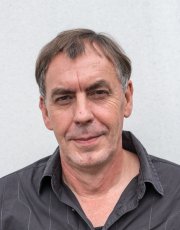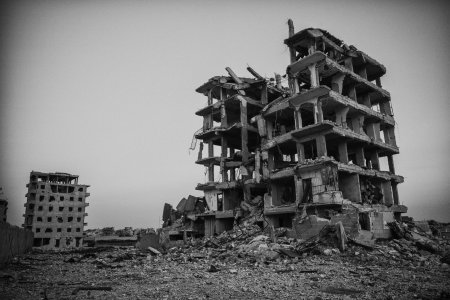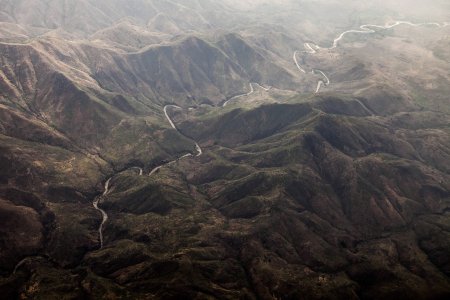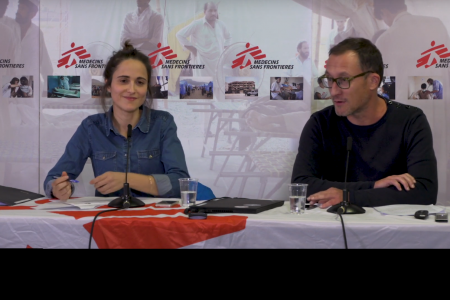
Book launch event - Violences extrêmes. Enquêter, secourir, juger République démocratique du Congo, Rwanda, Syrie
Jean-Hervé Bradol
The conference was held on Wednesday, November 17th, 2021 at MSF's headquarters (14-34 av. Jean Jaurès, 75019 Paris).
We were very happy to welcome two authors of the book: sociologist (CNRS) and Crash scientific committee member Claudine Vidal, and Jean-Hervé Bradol, doctor, former President of the French section of MSF and current director studies at the Crash, for the launching event of the newly-published book Violences extrêmes. Enquêter, secourir, juger République démocratique du Congo, Rwanda, Syrie (Éditions de la Maison des sciences de l’homme, Paris 2021). The event was hosted by Rony Brauman.
All articles of this book are based on field investigations. The different parts of the book could have been titled: investigating to know, investigating to save, investigating to judge.
Jean-Hervé Bradol introduced the works about Syria. Three of the authors were directly involved in the emergency relief activities he talked about: Hakim Khaldi, MENA Research fellow at MSF, Abdulkarim Ezkayez and Ammar Sabouni, both Syrian doctors. Another Research Fellow, Sophie Roborgh has studied the advocacy activities and the different methods aiming to create data on health facilities attacks.
Claudine Vidal showed that, if the question common to the field research gathered in the book - how to investigate extreme violence? - has been answered in different ways, the authors have in common that they have adopted the study of processes. Researchers Timothy Longman, Scott Straus, Nicolas Mariot, André Guichaoua and Bert Ingelaere, as well as Claudine herself, assess the investigations carried out on the genocide of the Tutsis in Rwanda, the investigations’ achievements, and their shortcomings. A journalist, Justine Brabant, a researcher, Myfanwy James, and a researcher, Marc Le Pape, illustrate three different ways of dealing with the practices and perpetrators of violence in Kivu.
Two of the book's authors, Marc Le Pape and Claudine Vidal, did a video interview (in French) with the Fondation Maison des Sciences de l'Homme to introduce the book's key elements.
_________________________
Extreme violence. Investigating, Saving, Judging Democratic Republic of Congo, Rwanda, Syria
Edited by: Laëtitia Atlani-Duault, Jean-Hervé Bradol, Marc Le Pape et Claudine Vidal.
The book gathers the contributions of Justine Brabant, Abdulkarim Ekzayez, André Guichaoua, Bert Ingelaere, Myfanwy James, Hakim Khaldi, Marc Le Pape, Timothy Longman, Nicolas Mariot, Sophie Roborgh, Ammar Sabouni, Scott Straus, Claudine Vidal.
To cite this content :
Jean-Hervé Bradol, Claudine Vidal, “Book launch event - Violences extrêmes. Enquêter, secourir, juger République démocratique du Congo, Rwanda, Syrie”, 17 novembre 2021, URL : https://msf-crash.org/en/conferences-debates/book-launch-event-violences-extremes-enqueter-secourir-juger-republique
If you would like to comment on this article, you can find us on social media or contact us here:
ContributePast events
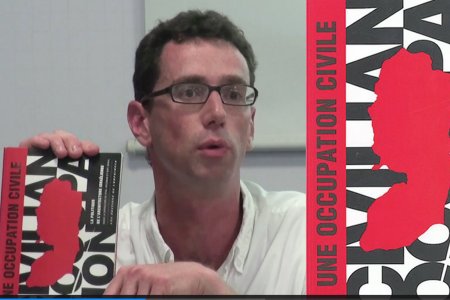 Conference
Conference
Eyal Weizman - Forensic Architecture at work
02/15/2016 - 07:00 PM 09:30 PMEyal Weizman, the founder of « Forensic Architecture » at the Goldsmiths College (University of London) came to present the project as well as a number of his works at a MSF - Crash conference organised at MSF.
 Conference
Conference
The polio eradication campaign put to test
02/04/2014 - 01:30 PM 07:30 PMThe polio eradication campaign has indeniably and remarkably succeeded in tumbling down the number of polio cases worldwide. But difficulties currently faced by the Programme -pockets of social resistance in several countries, reinfection of some countries, outbreak of epidemics associated with strains of vaccine-derived polio viruses- indeed challenge one of the main assumptions underlying the objective of the eradication itself : the full compliance of an entire population to a public health program.
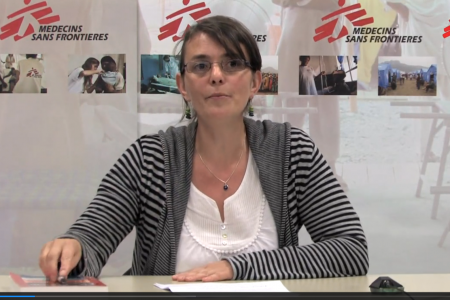 Conference
Conference
Living a Natural Disaster
11/03/2010 - 07:00 PM 09:00 PMPeople wandering through the rubble in Haiti, arms outstretched begging for help amid the floods in Pakistan: the media coverage of disasters invariably features helpless victims, overwhelmed by the disaster, waiting to be helped...
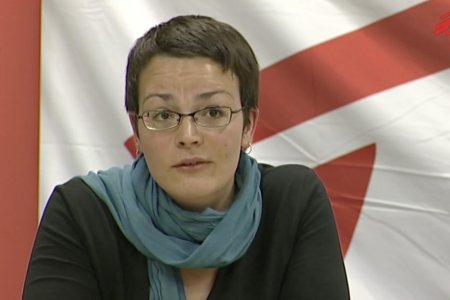 Lena Mucha
Conference
Lena Mucha
Conference
From their point of view
03/10/2009 - 07:00 PM 09:30 PMThe reasons why we are accepted, tolerated or sometimes rejected in the contexts where we work are often obscure. Caroline Abu-Sada and her team of sociology student shed some light on these issues.
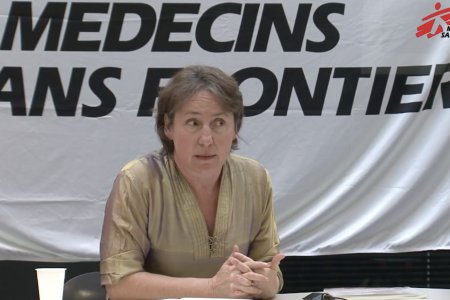 Jacob Zocherman
Conference
Jacob Zocherman
Conference
Grounds for divorce ? MSF and the international criminal court
04/08/2009 - 08:30 PM 10:30 PMIn 1998 MSF decided to support the creation of the International Criminal Court. 10 years later MSF stated that it ‘would not cooperate and would not transmit any information to the ICC'. How can we explain this change of position?

